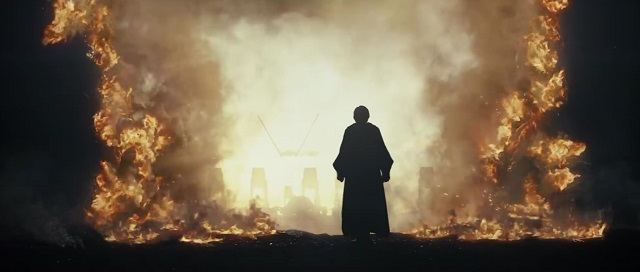
When no one answers the Resistance’s call for reinforcements on Crait in the final act of The Last Jedi, one can reach for a number of explanations: the chaos following the destruction of the New Republic government, individual systems’ lack of weaponry given the disarmament acts following the Battle of Jakku. One possible factor, however, plays into the heart of one of the sequel trilogy’s chief concerns, the idea of legacy. In the novel Bloodline by Claudia Grey, the truth of Darth Vader’s progeny is revealed, causing a massive scandal that forces Leia to leave the New Republic senate and tarnishes her name. That level of public disgrace could have easily endured the six years leading to the Battle of Crait, potential allies’ silence translating to a deep sense of distrust.
The weight of this scandal is something Leia must seemingly carry on her own—Luke’s place in the galaxy as a legend comes through unscathed, and again arises the idea of legacy. The starkly different effect this news has on Luke and Leia’s public standings is influenced by which institutional legacies they embody—the Jedi or the political—and reflects the splintered nature of Darth Vader’s identity over the course of his life.
Luke Skywalker’s reputation precedes him by light years, tales of heroism during the Rebellion having solidified into legend and spread across the galaxy, from the destitute stable children in Canto Bight to the isolated planet Jakku. The inherent resilience of legends aside, Luke’s own is given an immense amount of power by the nature of the position he steps into over the course of the Empire’s fall: the galaxy’s only Jedi. “Jedi” is a loaded title, evoking not only the idea of a time before the Clone Wars and the rise of the Empire but also a potential return to it. Of course, that era was not without its problems, nor were the Jedi themselves, but nearly fifty years and countless Imperial-inflicted traumas lie between Order 66 and the parentage scandal. That is more than enough time and fodder to build the rose-colored glasses making the Old Republic out as an ideal, especially when the generation who actually lived through it has mostly passed. Read More
